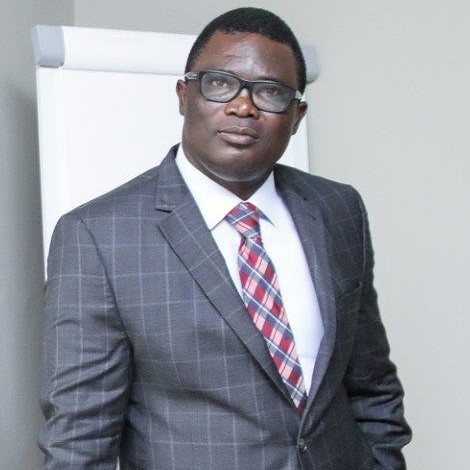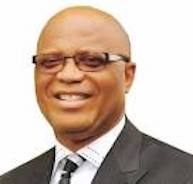NEWS
Why national development growth are slow — Uwa

An alumnus of King’s College, Mr Etigwe Uwa (SAN), has blamed the slow pace of national development and growth on the weaponisation of poverty and ethnicity by some political leaders.
Uwa was speaking at the 114th annual Founder’s Day lecture organised by the King’s College Old Boys Association (KCOBA) on Wednesday, in Lagos.
The lecture, with the theme: “Dismantling the Barriers; Creating a Pathway for the Emergence of Effective Leaders in Nigeria”, is one of the activities lined up for the commemoration of the anniversary.
The week long celebration by the association is tagged ‘King’s Week 2023’.
According to Uwa, corruption among politicians is the reason why the country still finds itself where it is, as they seem not to make the yearnings of the masses their top priority.
He noted that it was time the citizens resolved collectively as a people to break the barrier in the political space and take back what rightly belonged to them.
“Until Nigerians realize that there must be a mass invasion of the political space, not much is going to happen.
“We should also allow for a constitutional amendment that will accommodate independent candidacy.
“I will also suggest an electronic voting system, so that counting and collation is done electronically. We should take a cue from the banks and the telecommunications who have data base of all their customers and monitor their activities electronically. This too can be done when voting.
Uwa, who was a panelist at the lecture, emphasized the need to address the imbalance existing in the education sector in the country.
According to him, such imbalance takes away the motivation that people need to work hard.
“We must strive to do a catch up and create a level playing field. We must put our hands together, work together and ensure that there is equity in all spheres of our social life including education, he said.
Earlier in his keynote address, Sen. Enyinnaya Abaribe also identifies ethnicity and religion as some of the barriers facing the country, as it yearned for greatness.
According to him, these barriers are intertwined and have the potential to bring down any nation if not checked.
He stressed the need for a collective effort to stand against these factors in a bid to advance the course of the citizens and the nation itself.
“Whenever you see a system where people put tribal and religious sentiments ahead of the good governance, then such system could be heading for difficult times. Ultimately it slows down progress.
“We must also not allow our inability to take care of our children by allowing them drop out of school and align with some other things in the name of religion.
We must not leave out the substance that we are supposed to use to make Nigeria great.
“We must be able to know when to draw the lines by ensuring that the children are given their rights, especially quality education, taught good morals as well as commit more to character moulding that will give way to sound leaders of the country,” he said.
The lawmaker also identified lack of justice and equity as another barrier hindering accelerated growth and development of the country.
“Nothing endangers the feeling of the citizens, when they seem to be treated like second class citizens, especially when it is done brazenly.
“Another barrier is that of lack of competence and vision. Institutional competence has also been discovered over time to be one of the major reason for the state of our nation today.
There is the need for the right man for the job to always be the one to be considered, irrespective of who is involved.
“Another mind bugling issue that has posed as a serious barrier to the advancement of our country is that of corruption.
“Nigeria as a country is blessed with a lot of honest and enterprising people and we must not allow the corrupt ones to hold us down, because of their shameful acts. The challenge is that we hardly make a scape goat of any one.
“We must encourage those that are forthright, showcase them to the world in order to breakdown these barriers,” he stated.
Mr Funsho Doherty, ADC gubernatorial candidate for Lagos State, also a panelist at the lecture, urged citizens not to lose hope as the country was blessed with abundance of both human and material resources.
According to him, Democracy itself does not produce good leaders, noting that all what is required is good pillars to ensure the emergence of such leaders.
He said that there was the need for a better electoral process, adding that in doing this, all the pillars of democracy must not be undermined.
“We must focus on all the factors that have been highlighted here today if we indeed want to dismantle all the barriers and find means of coming together as a people and stay united,
“We cannot succeed if we are divided. We must also leverage on the use of technology in a bid to advance our political course and support our victory,” he said.
The President of the association, Alhaji Kashim Ibrahim-Imam emphasised on the need for a free and compulsory basic education for children of school age.
According to him, education is the right of every child, and it is a disservice to the country itself as well as the children, if it failed to provide it
Mr Olumide Apata, Chairman, Planning Committee if this year’s Kong’s Week, said that if the country must dismantle the barriers, it must start with the people.
He also stressed the need for the elders in the country to ensure that they do not constitute barriers. (NAN)
Foreign News
French Butchers’ shops Closed After Child Dies of Rare Illness

Authorities in northern France have shut two butcher’s shops after several children were hospitalised and one died from a rare illness thought to be linked to infected meat products.
Investigators found that most of the children had eaten meat from the shops in Saint-Quentin, the prefecture announced on Friday.
The children aged between one and 12, eight children from the town of 53,000 inhabitants and surrounding area were hospitalised in the past week with severe diarrhoea.
Five developed haemolytic uraemic syndrome (HUS), a rare form of acute kidney failure, from which a 12-year-old child has died.
HUS usually occurs in children as a result of an intestinal infection, it leads to the formation of blood clots that block the brain, heart and kidneys in particular.
Up to 165 cases of children with HUS syndrome are documented in France each year.
The authorities urged residents not to consume meat products bought in the closed shops until laboratory tests have proven the cause of the illness beyond doubt.(dpa/NAN)
Foreign News
Over 650 Die in Iran After First Week of Israeli strikes

More than 650 people have been killed in Iran following a massive Israeli bombing campaign launched a week ago, an activist group said on Friday.
The U.S.-based Human Rights Activists News Agency (HRANA) reported that 657 people have died and 2,037 have been injured in the nationwide airstrikes.
The Iranian government does not publish daily figures on casualties.
HRANA relies on a broad network of informants and publicly available sources.
The group said the dead include at least 263 civilians and 164 members of the military.
Another 230 fatalities remain unidentified.
The network also reported damage to civilian infrastructure, including a projectile striking a children’s hospital in Tehran, which did not result in any injuries.
In the western province of Ilam, a fire station was damaged, HRANA said, while an Israeli attack on a car factory in western Iran triggered a large fire.
Israel maintains its objective is to prevent Iran from acquiring nuclear weapons, which it considers an existential threat. (dpa/NAN)
Education
NDIC Urges Youths To Shun Cybercrime, Embrace Financial Discipline

The Nigeria Deposit Insurance Corporation (NDIC) has advised youths to steer clear of cybercrimes and embrace legitimate sources of income to secure their future.
Mr Adefemi Shaba, NDIC Port Harcourt Zonal Controller, gave the remark on Friday while addressing over 300 students at the 2025 Financial Literacy Day held at Community Secondary School Okoro-Nu-Odo, Rumuagholu, Obio/Akpo area of Rivers.
The theme of the event was “Think Before You Follow, Wish Money for Tomorrow.
”Shaba emphasised the need for students to reject the ‘get-rich-quick’ mentality, saying that they should invest their time in productive and meaningful ventures that would secure their future.
According to him, cybercrime and other unlawful means of making money are destructive to progress, that must be avoided at all costs.
He explained that NDIC, in collaboration with the Central Bank of Nigeria (CBN), monitored and supervised banks to ensure safe and sound banking practices.
“NDIC is mandated to protect depositors’ funds, maintain stability within the financial system, guarantee bank deposit liabilities, and protect an efficient and effective payment system.
“This is why we are here – to educate students on managing their finances, saving, and investing for the future,” he stated.
Also speaking, Mr Alfred Ijah, Senior Manager, Communication and Public Affairs, NDIC, described the lack of financial literacy as a key challenge affecting the nation’s financial institutions.
He encouraged students to work hard, earn legitimately, and develop sound financial habits.
“It is important to cultivate the habit of saving, investing wisely, spending responsibly, and helping those in need.
“Making money through internet fraud, theft, or gambling is illegal. Money made through such means lacks legitimacy and is difficult to preserve or manage,” Ijah said.
Mr Peter Njoku, Assistant Director, Rivers State Ministry of Education, commended NDIC for selecting the state to host this year’s Financial Literacy Day.
Njoku, who represented the state government, stressed the critical importance of equipping young people with the knowledge of financial planning and long-term financial viability.
He urged students to apply the knowledge gained to improve their lives and grow into responsible citizens.
“Youths engaging in internet fraud require proper re-orientation, as cyber fraud is no different from stealing or robbery.
“They must desist, because every day is for the thief, but one day is for the owner of the house.
“If they persist, it will only lead to ruin, destroying their future and potential,” he concluded. (NAN)




















